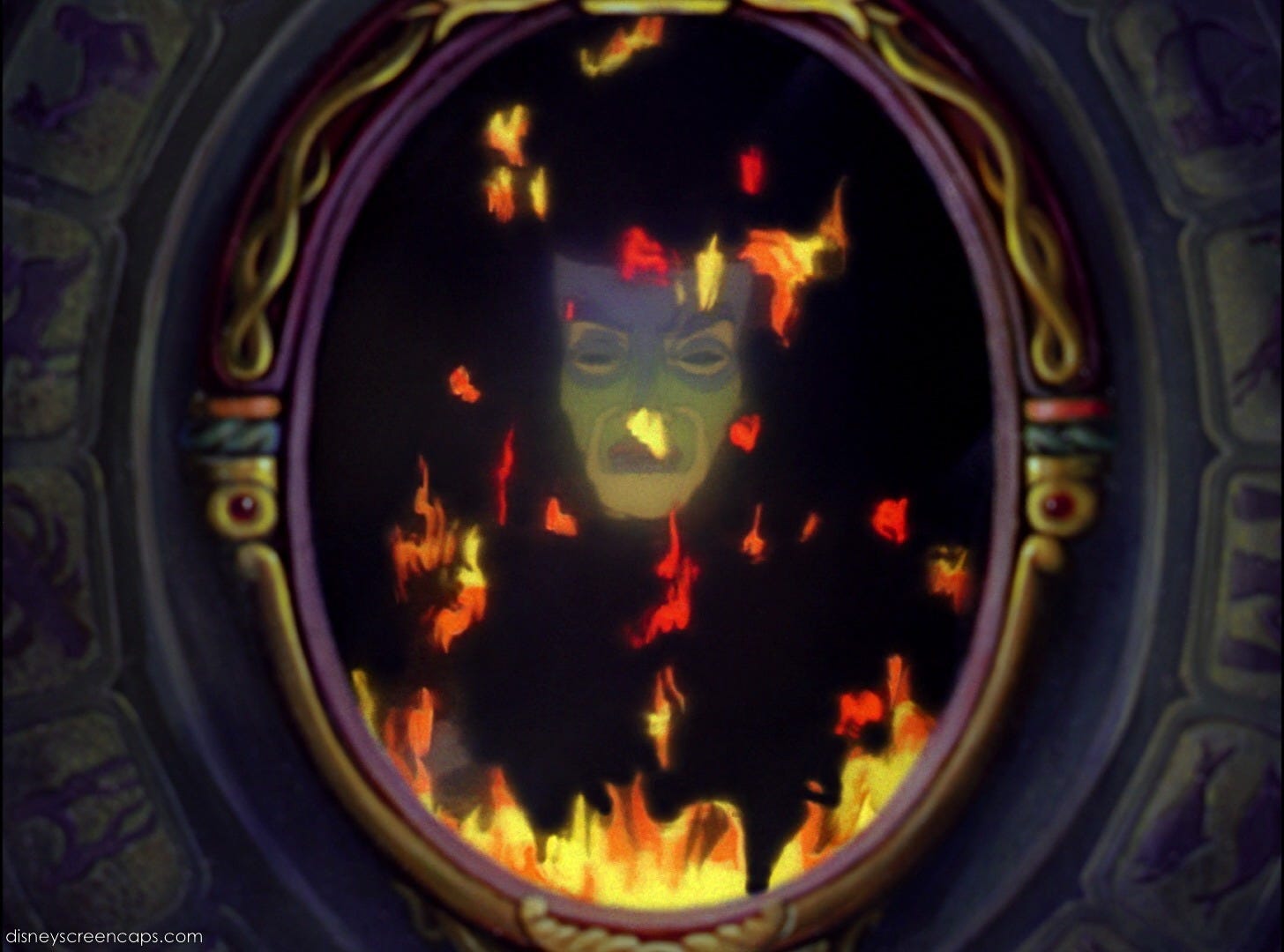Published n. 7: Disinfotsunami
Small talk has become a kind of currency. The value of words measured by clicks.
We’re at a point in social channels where the meaning, wisdom, and insight of words plays no part in the decision to write.
The important things is that people click. If they click, then the words have value—ignoring how little value there is, when measured against the goodness of them.
But here’s the thing—all that disinformation junk circulates because there’s a demand for it. The days of value assigned to researched, curated, and carefully nuanced supply of information and knowledge are long gone.
People now say whatever they want—while they can (there might be a time they won’t be able to anymore)—and if it fills a void or fuels a basic instinct, it flies without guardrails.
Wear your helmets, everyone. Social media companies don’t give a hoot.
“There is a bird and a stone in your body. Your job is not to kill the bird with the stone.”
Victoria Chang
What’s out there must come from somewhere—and that is us. However devious an opinion, it’s a mirror of someone. Outrage fuels the bonfire of vanity metrics. ‘If it bleeds, it leads.’
American poet Victoria Chang’s verse “There is a bird and a stone in your body. Your job is not to kill the bird with the stone” explains succinctly human make-up. We’re both delicate and vulnerable—the bird—and capable of harm—the stone.
Mirror that, and what you get is—the bird represents the victim or the powerless, the stone the aggressor or the oppressor. Demand is how clickbait works.
I don’t get much ‘engagement’ out of my articles and essays. But that’s how I know this space is not a power play to harm others—especially those who are weaker and more vulnerable.
The theme for this edition of published is a more nuanced read of information. It’s often overlooked because, ‘hey—few to no clicks,’ or ‘not what I believe,’ or ‘just give me the headline.’
On Value in Culture is a reader-supported guide to the role of narrative, language, and art in how we organize, perceive, and communicate about reality. Support my work with a paid subscription.
1/8 Since the last round-up, On Value in Culture published:
(🔒) Secrets, Gossip, and Rumors—How we form, keep, spread, and maintain our beliefs.
A better story to tell—A narrative can be both accurate, and wrong.
(🔒) Food Culture, a mini-series for supporters.
Part 1 of 3—A savory investigation into why humans eat what they eat—how taste is part of civilization.
Part 2 of 3—How nutrition shaped humanity. What we eat determines how long—and how well—we live.
Part 3 of 3—A historical review of how we brand, package, market, and sell a promise to make it the most appealing.
That’s bananas!—The human cost for the fruit that became a consumer staple and cultural symbol.
A reminder for supporters that they can access full articles and commentary at The Vault (🔒). Thank you for supporting my work on value.
2/8 Every good detective knows to beware of the obvious—yet misleading—stuff. We’d do well to remember logic and step back from emotion more. Canadian journalist Dan Garner often provides good examples from less known or famous history.
In this case, he describes what happened after a complete unknown approached and killed Senator Huey Long in Baton Rouge (1935.) But first, who ever was Long, and what did he represent?
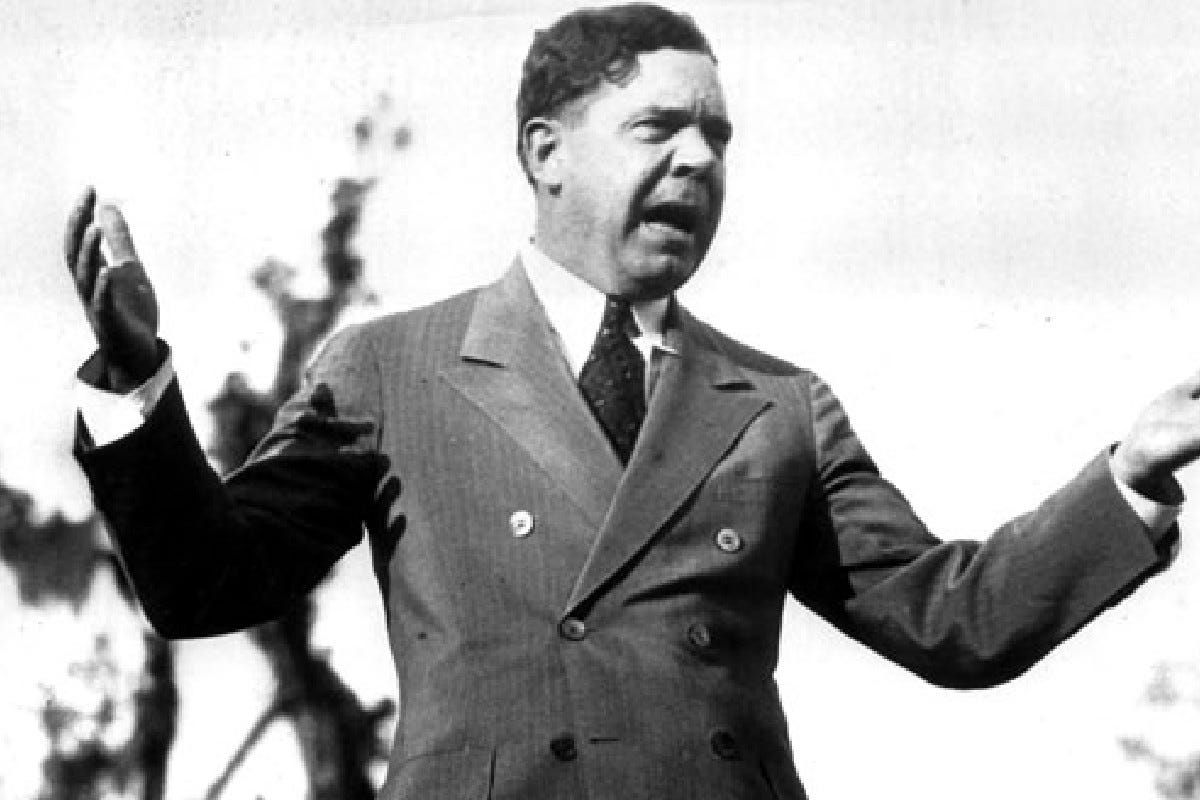
“Long was the former governor of Louisiana who had turned the state into a personal fiefdom. Even when Long left Baton Rouge for Washington DC and the national stage, he used a puppet governor to maintain his iron grip at home. After firing state civil servants at all levels, Long turned state jobs into gifts he distributed to those who swore personal fealty. Nothing happened in Louisiana without Long’s personal approval. Criticism of the Kingfish was punished in countless ways, ranging from the dubiously legal to the flagrantly criminal, and with bodyguards sometimes dubbed ‘Cossacks’ and ‘skullcrushers’ by Long’s critics, the threat of violence was constant. Running for governor, Long personally punched his 60-year-old opponent in the face. His rural and working class supporters loved it.
But by the time of his murder, Long had transcended his state and become a rising star in federal politics.”
I’m reminded of how violence begets violence. Beyond the conspiracy theories, which sprouted out of thin air, the answer to why Long was shot and killed will surprise you. And no, I wager that none of us would have guessed.
Why do we draw conclusions before we have the facts?
When confronted with chaos or a shocking event, the brain does its best to bridge gaps and jump to conclusion. The fact that the first go fits our beliefs like a glove is part of the ‘small services’ the 3-lbs mass of matter provide to its master—us.
3/8 Amanda Guinzburg is the triathlete of writing—she does comedy, depth, and calls to action with eloquence and elegance. She may not write often, but every single time, it’s an incisive and insightful read.
About the Electric Bugaloo and sequels, she has an uncanny ability to sense and describe culture so it comes alive.
“Developmentally speaking, America’s brain is somewhere between the ages of 18 and 21. Technically, it’s old enough to drink, vote, and get a driver’s license but remains shy of a full frontal lobe. It lacks complete executive function, is frequently impulsive, and often reckless. It is unable to rent the car many of us are attempting to remove President Biden’s keys from.”
Having lived in America for more than three decades, I can tell you this decade is the most decadent. It reminds me of the famous ‘decline and fall.’ The signs were all there, and now they’re popping out.
Things are always a long time in coming—that’s why they seem sudden when they do.
You wouldn’t know Americans dislike sequels from the constant flow of Rocky, Spider-Man, Tomb Raider, Hotel Transylvania, Star Wars, Deadpool, or how about the Marvel cinematic universe?
And while we’re on the topic of movie-making, how about Hollywood stars remember they’re only acting when they’re by chance a ‘senator’ in a story? I don’t know about you, but if I really care for a friend, I don’t write an Op/Ed to tell them what I think—I tell them directly.
So yes, it’s important to remember what our job is.
4/8 I’m part of two worlds—Italy/Europe and America. I navigate these very different world by tapping into my roots and history, as well as my work experience and exposure to opportunities.
For that reason, the concept of cultural adjacency Alex Perez exemplifies resonates.
It’s useful to be able to put oneself in the shoes of another person—especially when they’re part of a different reality.
Adjacency lends to pragmatism, a word I don’t often hear in elite parlance. When you’re constantly in between worlds, having to navigate disparate social scenes, you develop a natural pragmatism. This pragmatism, often developed at an early age as a defense mechanism, becomes the guiding principle of the adjacent person. If you’re hanging out with an unsavory character, for instance, and you don’t want to get your ass kicked, you go with the flow. You might disagree with this person, but opposing theories don’t register with this kind of guy.
Value and culture go hand-in-hand. If all you’ve got in the point of view of the person who hasn’t known hardship, even hunger, you won’t have a clue of what the world looks like from there.
Status switching requires another kind of sophistication—the desire to truly understand. It may not be one of the ‘soft’ skills that get talked about all over social media, but this is the kind of empathy we need more of—pragmatic and clear-eyed.

And we’re not getting it from mainstream media. Which is why I keep reading independent journalists like Perez, Henley, and more.
5/8 You know a good question when you come across it. Often, it reads like something you should have thought about—so why didn’t you until you stumbled upon it? And are you going to reflect on it now that you found it?
If speech is so free, why is it so expensive?
Refined insights is going after the hype. And boy, do we have plenty of it everywhere. Back to our main question.
Exhibit c, social channels.
“Each time someone creates a new platform to ‘protect’ and ‘encourage’ free speech, they just end up regulating the content anyway. You can waste a fine evening by reading up on how many left-wing media platforms control free speech, but right-wing platforms like Parler and 4chan also regulate content.”
“[O]ur goal is to protect free speech and connect all the people of the world...” says Facebook. Which is funny, because people seem to be doing just fine volunteering their opinion—online, on planes, on lines, on anything, unasked.
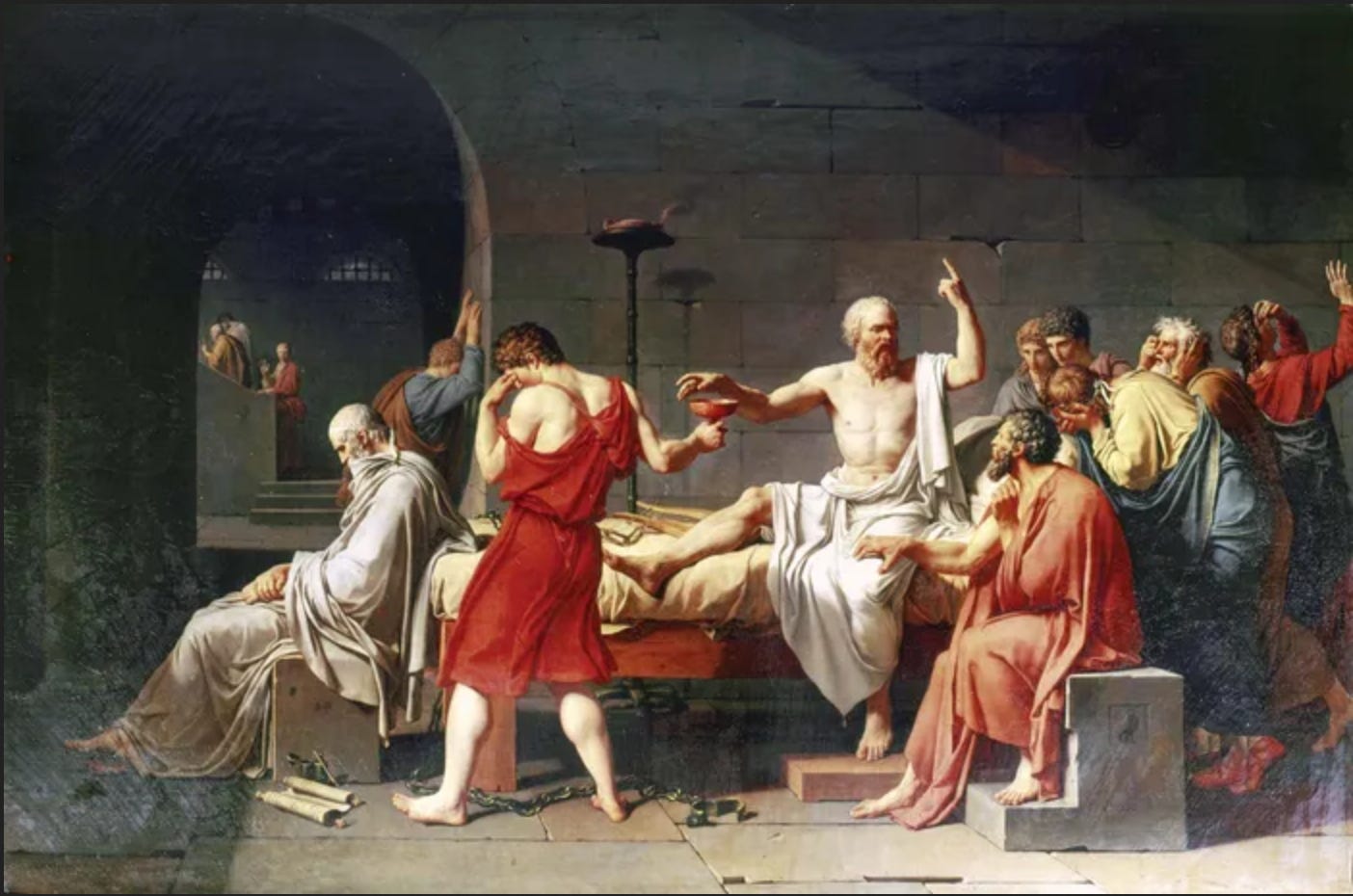
But, and here’s the insight, people don’t want free speech, in social contexts what they want is ‘free attention.’ More people would leave Google search if there were better options (I’ve used DuckDuckGo for years.) Because Google search results are crap.
So when the wrong kinds of people hoard attention, we leave. If you feel up to diving into a rabbit hole on social platforms and scale, the essay is a good reminder that—yup—there are constrains—LinkedIn added the same features that frustrate us elsewhere.
A good reminder that even humble-bragging has its limits.
6/8 Ted Gioa asks what do you do with a Brilliant Friend? He’s talking about My Brilliant Friend, Elena Ferrante’s novel, which the New York Times voted the top of the ten best books of the 21st century.
His is a good example of what a book review could be. Ferrante’s is a great example of what a work of narrative could be.
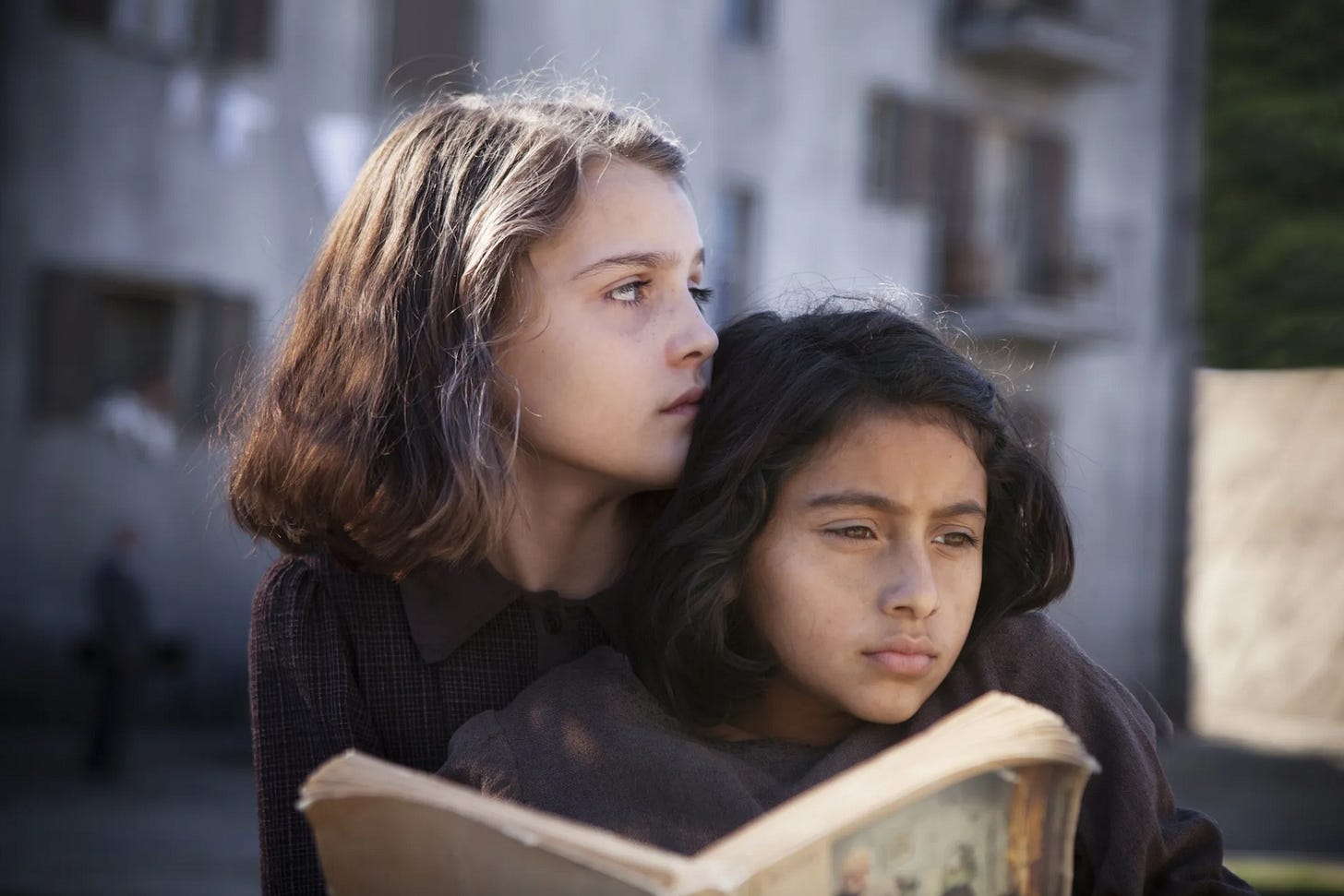
“In other words, Elena Ferrante has done the exact opposite of what many claim. Instead of transferring the ‘American dream’ to impoverished Naples, she has actually embraced the fatalistic view, so common in traditional Catholic societies, that destiny is more powerful than our aspirations. She tells us that our capacity for self-reinvention is sharply constrained at every turn.”
Both remind us how our “freedom to act is constrained at every turn.”
I can write the best essays I know how to—but if people don’t read, share, comment like the 100K+ Ted’s subscribers... History and culture mostly from a pan-European angle are an acquired taste. So, it’s crickets out there.
Which reminds me, why do we say ‘crickets,’ to mean silence? Cricket chirps can reach 100 decibels. Merriam-Webster added the word to the dictionary in September 2023 with the definition ‘a conspicuous lack of response.’1
In the Naples of the 1950s, you shrug the indifference off and keep going. The transcendent world of art, creativity, and imagination is a valuable choice. Within that space, the harried online streams where nothing sticks no longer touch us.
7/8 Humans are pattern-making machines. That’s what we do form the moment we get up in the morning, to the final thought of the day. We fit things into stories, and then we fall in love with our stories. Hence, an interesting question.
Do You Believe in Coincidences?
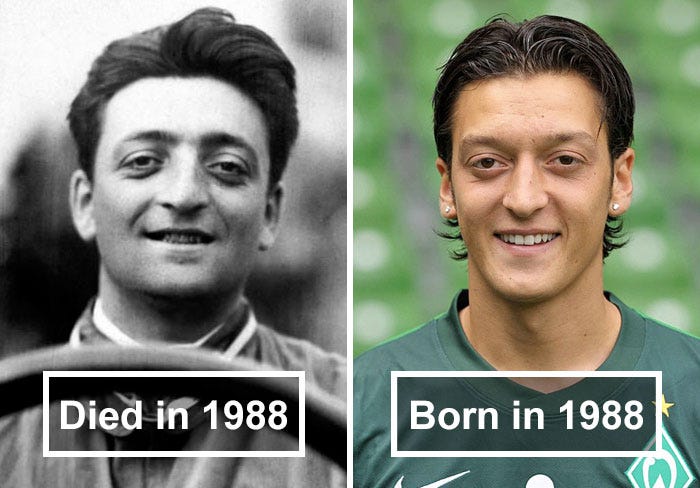
Robert de Neufville says, ‘Yeah of course absolutely.’ What do you say?
“Conspiracy theorists have some pretty stupid ideas, but they’ve often considered their subject more thoroughly than most people who correctly dismiss their theories. The reason most of us aren’t Flat Earthers is not that we’re more familiar with the evidence the Earth is round. The reason people draw implausible or unlikely connections is not because they’re fundamentally stupid but because they lack a specific epistemological skill in assessing evidence.”
It’s called simply ‘bad at thinking.’ So we might want to remember that. I have people in my life who believe ‘there are no coincidences’ or that ‘everything happens for a reason.’ Mostly, it’s unwavering faith that excuses their reason for not understanding.
However, we’d do well to remember that things do happen by chance. Historian Alessandro Barbero gave me a very good question to ponder when someone is convinced of something, ‘and how do you know?’
If the connections are real, there’s evidence somewhere.
8/8 Since tonight marks the opening of the summer Olympics in Paris, a bit of Olympics trivia.

Mexican track and field athlete Enriqueta Basilio2 made history for being the first woman to light the Olympic flame in the opening ceremony of the games—she was the last torchbearer at the Mexico City Olympics in 1968.
“Crickets are often used by writers to convey atmosphere or to create a sense of place. That is, not the insects themselves, but rather the sound that crickets make. The chirping of crickets is the sound of nature on a summer night, and it has become a kind of cultural shorthand that indicates much with a single word: the setting is far from the city and far from people.”
The term seems to have evolved from senses indicating a rural setting—which is less noisy than the city by a lot—to any place or stretch of time quiet enough that, in theory, only the sound of crickets could be heard, as in this example from the 2007 novel Agnes and the Hitman: “There was a silence long enough to hear crickets in, and Agnes thought, If he makes some crack about me being not little, I’m gonna hit him again, and then he spoke.”
Norma Enriqueta ‘Queta’ Basilio Sotelo (1948 – 2019) was born in Mexicali, capital of Baja California. She came from an athletic family; her father was a cotton farmer.






